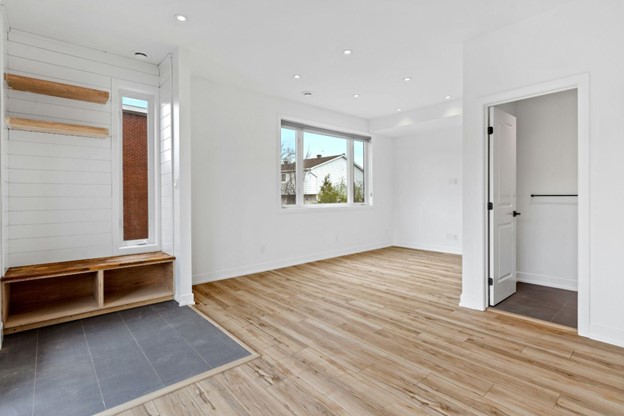
Summary: Most standard landlord insurance policies won’t cover a vacancy. However, there are different types of vacancies and different policies available. You can find coverage depending on your needs. Communicating with your insurance carrier is key to finding the right coverage and price for your rental. Estimated Read Time: 2 mins
Standard landlord insurance typically excludes coverage for vacancies caused by tenant turnover or lease expiration. In most cases, if a property remains unoccupied for more than 30 days, policies do not provide vacancy coverage.
To ensure comprehensive protection, landlords should consider obtaining additional coverage, available at a higher premium. While acquiring vacancy insurance entails extra expenses, it is often essential.
Vacant properties are susceptible to risks such as vandalism, squatting, and undetected damage, which can result in substantial financial losses. Landlords have the option to add vacancy coverage to their existing landlord insurance policy or purchase it as a separate standalone policy.
Regardless of how you protect your home, it’s important to seek out policies and compare your options. Everyone has unique needs and properties. Be sure to protect yourself by comparing coverage with a licensed insurance agent.
Landlord Insurance Vacant Property Exceptions
There are many situations in which landlord insurance for a vacant property won’t cover you, however, there are also some vacancies and policies that may allow for coverage.
Vacancies in rental properties stem from various factors, including tenant turnover, seasonal changes, and natural disasters:
● Tenant turnover occurs when renters vacate before or at the end of their lease agreement, sometimes unexpectedly.
● Seasonal vacancies arise from demand fluctuations, particularly in tourism-driven markets.
● Natural disasters, like floods or fires, can render properties uninhabitable, leading to vacancies.
● Maintenance vacancies result from necessary repairs or renovations, temporarily making units unavailable.
● Long-term vacancies occur when properties remain unoccupied for extended periods due to factors like age or location.
Landlords must address vacancies promptly to minimize downtime and maximize returns on investment. If your property is going to be vacant for more than 30 to 60 days, you’ll also need to contact your insurance agent to notify them.
How Vacancies Can Affect Landlord Insurance Premiums
Insurance coverage for unoccupied homes typically ceases after 30 days without occupancy, unless a vacancy permit is obtained beforehand. While this permit may extend coverage for standard perils like fire and wind, it generally excludes protection from losses involving theft, glass breakage, or water damage.
Variations exist among insurers, so policyholders should consult their agent or representative for details. However, many insurers avoid insuring vacant homes, as they are more susceptible to such damage.
Some carriers are offering specific vacant home insurance policies, with premiums determined by factors such as security measures, winterization, and duration of vacancy. Keep in mind you’ll likely pay higher premiums than traditional coverage.
If you want to save more, regular check-ins by a designated individual may lead to reduced premiums. Still, landlord policies for unoccupied homes typically cost 50% to 60% more than standard homeowners insurance.
A comprehensive policy should also include reimbursement for lost rental income due to building damage, often covering up to 12 months of losses. Get a landlord insurance quote to compare your options in Texas.
Sources:
1. A Vacant Home Still Needs Insurance Don’t Be Caught Without Coverage, III. Accessed February 2024.
https://www.iii.org/press-release/a-vacant-home-still-needs-insurance-dont-be-caught-without-coverage-111909
